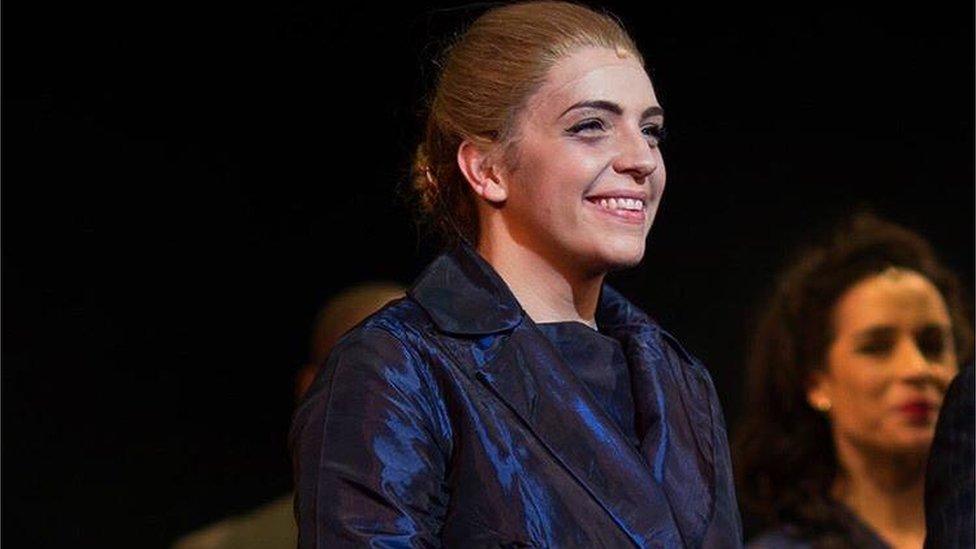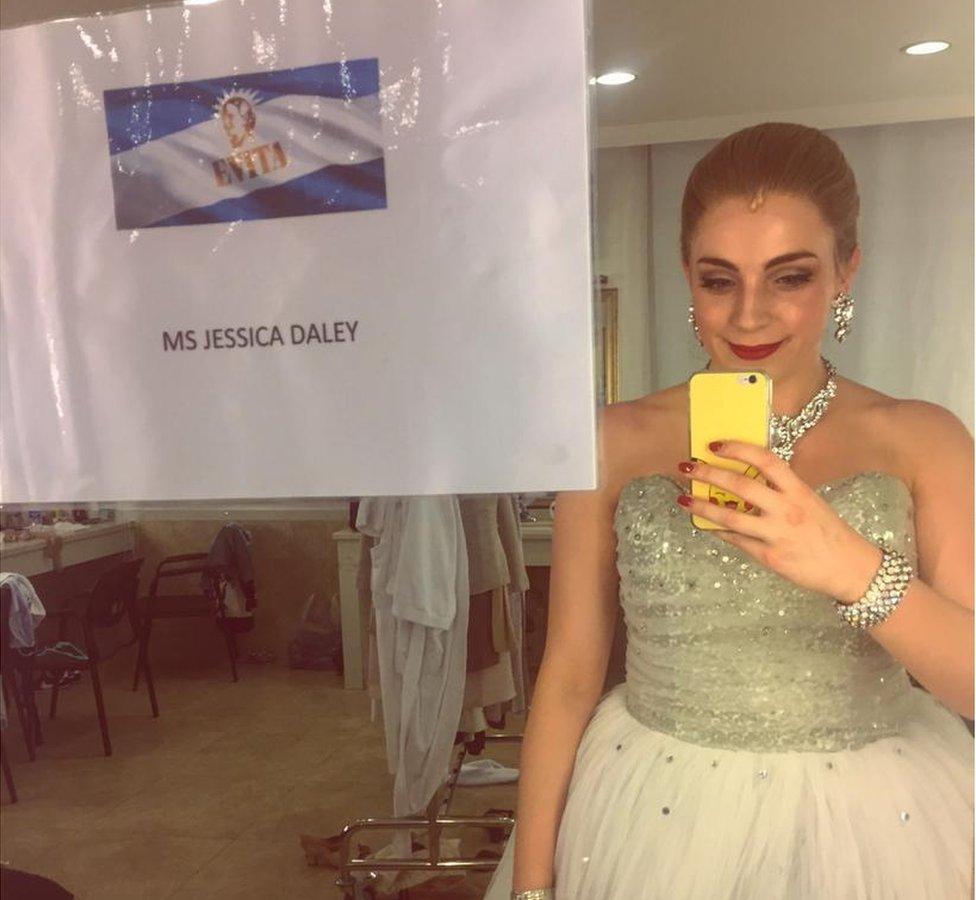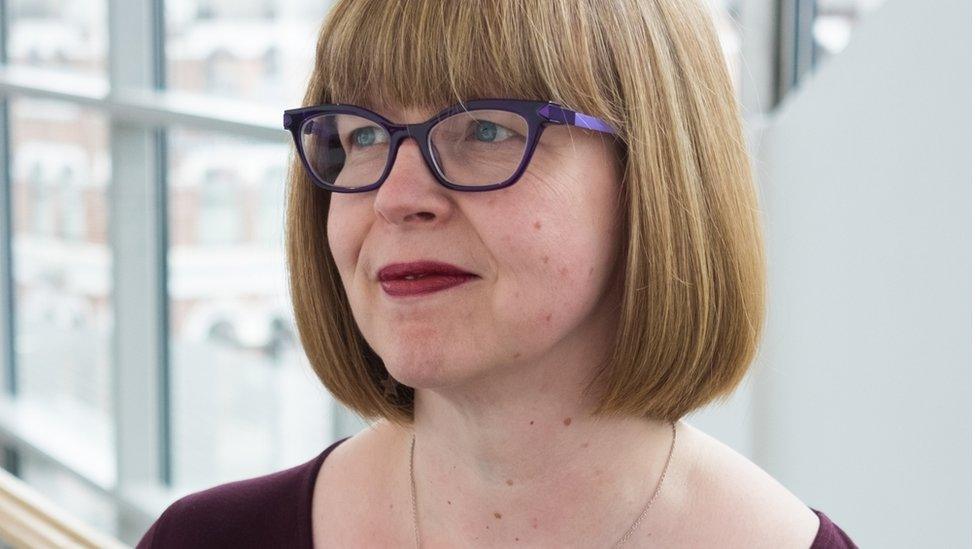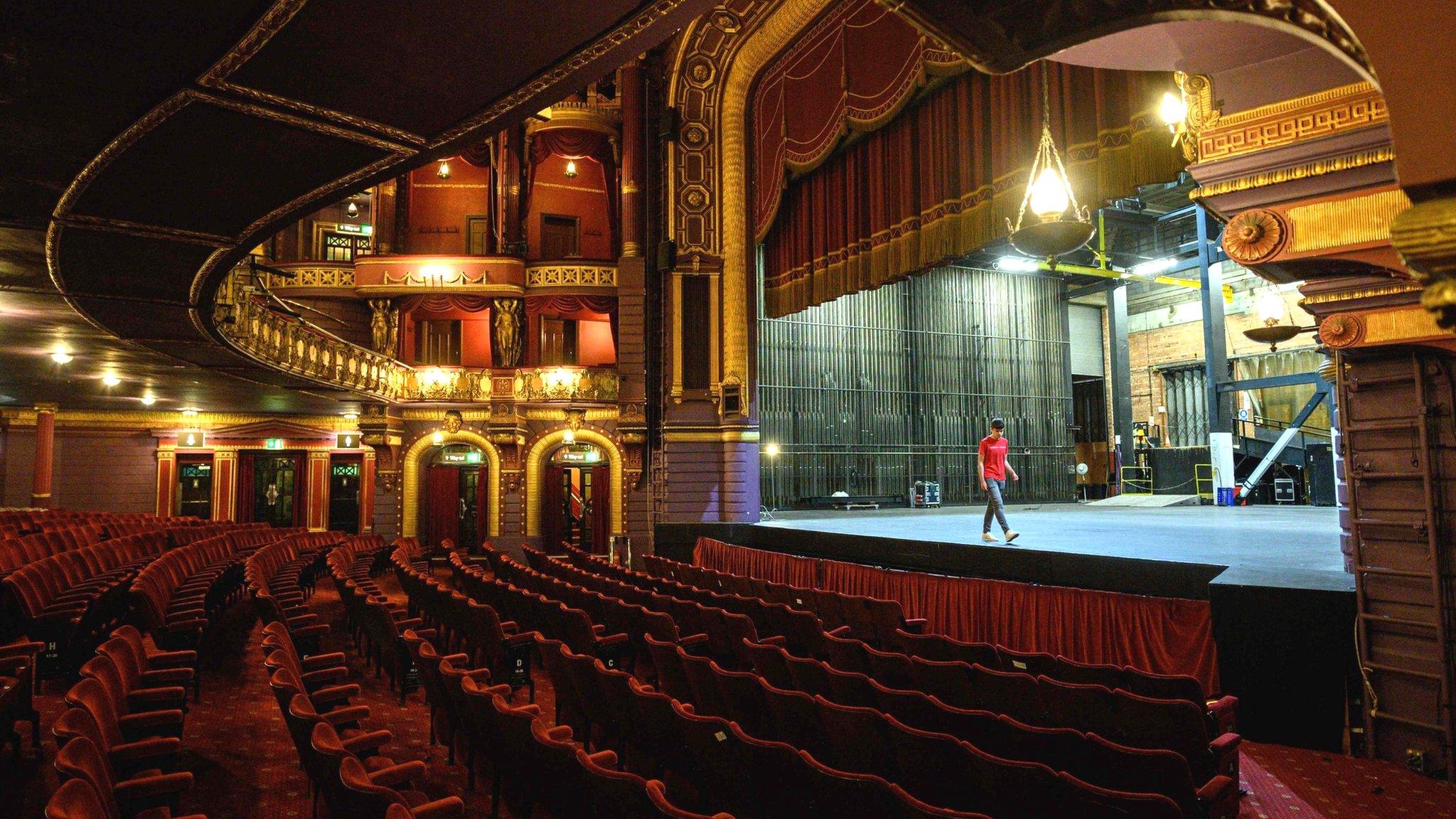Coronavirus: Arts industry 'desperately' needs detail on support package
- Published

Jess Daley took part in the BBC talent show Over the Rainbow
The government's support package for the arts industry "won't go to the right places", campaigners fear.
The £1.5bn fund is aimed at protecting theatres, galleries and museums.
Actress Jess Daley, from Teesside, "cried tears of joy" when she read about the scheme, but said a lack of detail had put a strain on her mental health.
One theatre boss said she was not confident the North East would receive a "fair share" of the support.
Culture Secretary Oliver Dowden said grants and loans would aim to preserve the "crown jewels" in the arts sector, alongside many local venues, but added the funds would not save every job.
£1.28bnAnnual ticket revenue
290,000Workers employed
34mAnnual visitors
£133mAnnual VAT payments
70%Jobs at risk
Society of London Theatre and Theatre UK chief executive Julian Bird told the Unusual Times podcast the industry was delighted but was now awaiting details with "many difficult decisions ahead".
"We do expect the money to be used widely across the UK to help organisations get through this until the end of March," he said.
"This is going to be administered through the Arts Council of England, the British Film Institute, the National Lottery Heritage Fund and Historic England.
"Of course there is a possibility that the money won't go to the right places.
"The thing I'm most disappointed about is that the work on freelancers has not yet borne any fruit from the government.
"We'd really like to see the government do something about that. Tens of thousands are struggling".
Industry Minds, a support network that offers free counselling to people in the arts, says its clientele has tripled since the start of lockdown.

Jess Daley said "you hear time and time again about this region being left behind"
Ms Daley, who took part in the BBC talent show Over the Rainbow and is co-host of Unusual Times, said: "My concern is that smaller, regional theatres could miss out in favour of larger institutions.
"I grew up performing locally at Middlesbrough Little Theatre as part of Middlesbrough Youth Theatre which was such a valuable, safe space for me to not only develop my skills, but to express myself and to develop my confidence.
"You hear time and time again about this region being left behind in favour of bigger cities and the capital, so I can't help but wonder if local venues could miss out on a share of that government grant."
Allow YouTube content?
This article contains content provided by Google YouTube. We ask for your permission before anything is loaded, as they may be using cookies and other technologies. You may want to read Google’s cookie policy, external and privacy policy, external before accepting. To view this content choose ‘accept and continue’.
The coronavirus pandemic has changed perceptions about local arts, according to Annabel Turpin, chief executive of Stockton arts centre ARC.
She is overseeing a £1m arts sector recovery scheme by the Tees Valley Combined Authority.
She is worried the North East will not receive a "fair share" of the government's package, but is hopeful.

Annabel Turpin said deciding where the money goes required "balance"
"I try not to look at it like a hierarchy, with the perception that an actor's pathway has to be local, to panto, to a bigger venue, to national theatre," she said.
"I think we should be valuing those local experiences. We can probably end up with a more diverse scene if we do.
"Ultimately, we are not going to be able to save everyone. It's about a balance. If it was me deciding, some larger theatres would close and some grassroots venues would close.
"We'd support an infrastructure across the country that as many people as possible can access."
How theatre can reopen during the pandemic
Nikolai Foster, artistic director of Leicester's Curve Theatre, welcomed the scheme, but said a timeline and dates were "desperately" needed.
He added: "80% of income comes from ticket sales. When will we be closed until? How do we apply for the fund and who is eligible? Only then can we know how much money we're going to need to reopen.
"It's vital that we support regional theatres. High streets are struggling, shops are closing and youth centres are closing. There are less opportunities for us to come together to enrich our lives via culture.
"Everyone is watching Netflix - those actors, creators and technicians started out in local theatres. They are training grounds.
"It's sad that maybe the penny will only drop when it's too late and they've gone."

Follow BBC North East & Cumbria on Twitter, external, Facebook, external and Instagram, external. Send your story ideas to northeastandcumbria@bbc.co.uk, external.
- Published7 July 2020
